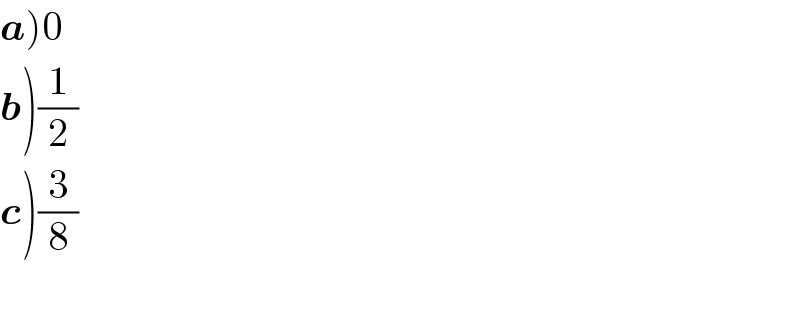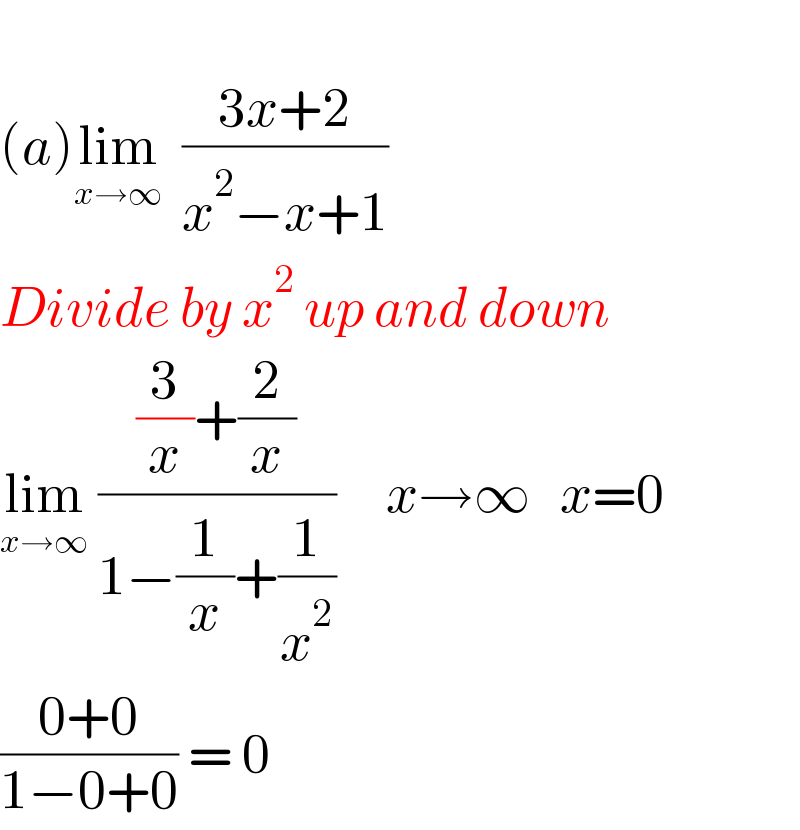
Question and Answers Forum
Question Number 183350 by Spillover last updated on 25/Dec/22

Commented by CElcedricjunior last updated on 25/Dec/22

Commented by Spillover last updated on 25/Dec/22

Answered by Spillover last updated on 25/Dec/22

Answered by Spillover last updated on 25/Dec/22

Answered by Spillover last updated on 25/Dec/22

